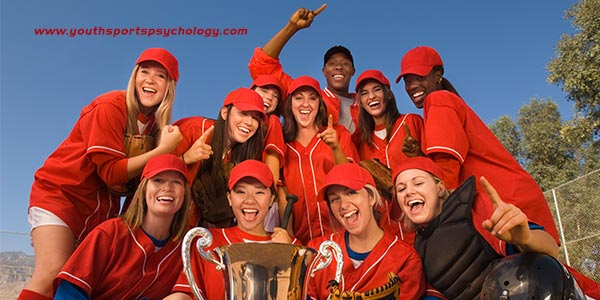
Fighting Perfectionism in Young Athletes
Do your young athletes only focus on mistakes after they compete? Do they criticize their performance instead of focusing on learning from their mistakes? Do they ignore what they did well?
If so, your sports kids are likely perfectionists. They tend to be hard on themselves after they compete, which undermines their confidence. Perfectionists focus on mistakes, goofs, and bad plays. They concentrate on what they should have done better.
These sports kids need to grow their confidence, instead of hurting it with high expectations. They need to stop judging their performance negatively and focus instead on how they can improve.
Young athletes should evaluate their performance in a way that’s helpful, rather than destructive.
One of the top challenges for perfectionists is that they have high expectations and are very hard on themselves after competing. They only focus on what they have done wrong.
They critique their performance and take these negative thoughts home with them, sometimes thinking about their goofs for hours or all night. Instead, these kids need to grow their confidence from competition to competition. They should not beat themselves up.
If they don’t perform up to their high expectations and only concentrate on missed opportunities and mistakes, their confidence will suffer.
Help kids combat perfectionism after a game. Ask them to think of two things they did well, mentally or physically. They should also think about two things they’d like to improve in the next competition. Their thoughts about improving should not be negative; they should not beat themselves up for making mistakes.
By focusing on how they can improve, they’re adopting a “growth” approach to competing. Instead of telling themselves that they’re terrible and can never improve, they should focus on ways they can learn and grow.
Keep in mind that they should complete this exercise in about a half-hour. Then it’s time to move on–to school, homework, or other activities. They need to stop thinking about sports.
If you can help your young athletes adopt a growth mindset, you’ll be doing them a big favor.
Instead of focusing on mistakes and telling themselves they’ll never get better, they’ll discover how to make the most of their mistakes, learn, and grow.
Related Articles on Youth Sports:
- Helping Kids Stop Criticizing Their Game
- The Benefits of Keeping Score in Youth Sports
- Mental Training Programs For Young Athletes
*Subscribe to The Sports Psychology Podcast on iTunes
*Subscribe to The Sports Psychology Podcast on Spotify
The Composed Sports Kid

“The Composed Sports Kid” audio and workbook digital download program for young athletes and their parents or coach helps kids cope with frustration and anger in sports. Help your sports kids learn how to manage expectations and let go of mistakes so they can keep their head in the game.
The Composed Sports Kid system is really two programs in one–one program to train parents and coaches how to help their kids practice composure, and one program that teaches young athletes–ages 6 to 13–how to improve composure, let go of mistakes quickly, have more self-acceptance, and thus enjoy sports more!
